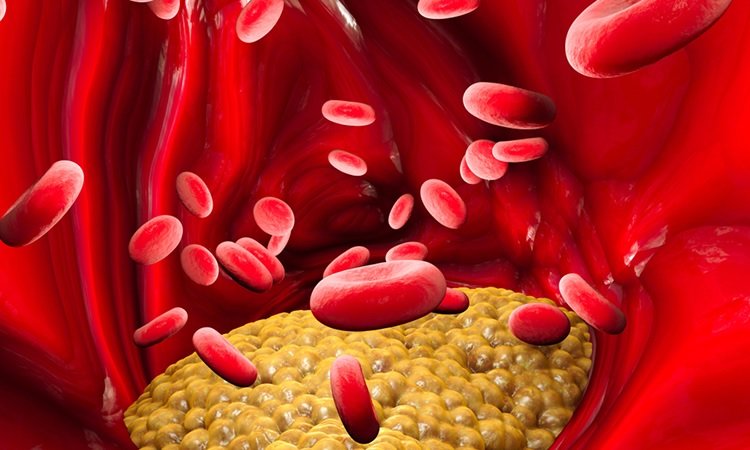Breakthroughs in Familial Chylomicronemia Syndrome Treatments | FCS Therapy Innovations
Discover how emerging therapies like gene therapy, RNA-based treatments, and enzyme replacement are transforming outcomes for Familial Chylomicronemia Syndrome (FCS) patients. Learn more about treatment options, including volanesorsen, vupanorsen, and alipogene tiparvovec.

Introduction: Understanding Familial Chylomicronemia Syndrome (FCS)
Familial Chylomicronemia Syndrome (FCS) is a rare genetic disorder characterized by the accumulation of chylomicrons—large lipoprotein particles—in the bloodstream due to impaired lipid metabolism. This condition, often caused by mutations in the LPL gene or related pathways, leads to extremely high levels of triglycerides in the blood. Patients with FCS experience recurrent episodes of abdominal pain, pancreatitis, and other complications that severely impact their quality of life.
For years, FCS treatments have been limited to dietary restrictions, primarily an ultra-low-fat diet, which often fails to fully control triglyceride levels or prevent complications. However, advancements in medical science have led to the development of emerging therapies that offer hope for improved patient outcomes.

The Challenges of Managing FCS
Symptoms and Complications of FCS
FCS manifests through a range of debilitating symptoms, including:
- Severe abdominal pain and recurrent pancreatitis
- Fatigue and difficulty concentrating
- Eruptive xanthomas (small, yellowish skin lesions)
- Nausea and vomiting
If left untreated or poorly managed, FCS can lead to chronic pancreatitis, organ damage, and even life-threatening complications. The psychological burden of living with a rare disorder further adds to the challenges faced by patients.
Traditional Management Strategies
For decades, the cornerstone of FCS management has been dietary modification. Patients are typically advised to adhere to a diet containing less than 20 grams of fat per day, as even small amounts of dietary fat can trigger hypertriglyceridemia. However, this restrictive diet often proves inadequate for achieving long-term triglyceride control, especially in severe cases.
Other traditional management options include:
- Omega-3 fatty acids (limited efficacy in FCS patients)
- Fibrates (generally ineffective for FCS due to the underlying genetic mutations)
- Antioxidant supplements to reduce inflammation
The limitations of these treatments have necessitated the development of targeted therapies to address the root cause of FCS.
Advancements in FCS Treatments
The Role of Gene Therapy
Gene therapy represents a groundbreaking approach to treating FCS by targeting the genetic mutations responsible for the disease. Specifically, this therapy aims to restore or enhance the function of the lipoprotein lipase (LPL) enzyme, which is deficient or dysfunctional in FCS patients. Early-stage clinical trials have shown promise in reducing triglyceride levels and minimizing symptoms.
One such example is alipogene tiparvovec, a gene therapy designed to deliver a functional copy of the LPL gene to muscle cells, where LPL is predominantly produced. Although its clinical use is still under investigation, the potential for long-term triglyceride control makes it a highly anticipated treatment option.
Novel RNA-Based Therapies
RNA-based therapies have emerged as a promising treatment modality for FCS. These therapies work by targeting specific RNA molecules involved in lipid metabolism, reducing the production of triglycerides at their source.
- Antisense Oligonucleotides (ASOs): ASOs are synthetic RNA strands designed to bind to and degrade target RNA molecules. One notable ASO therapy is volanesorsen, which targets apolipoprotein C-III (APOC3), a protein that inhibits triglyceride breakdown. By reducing APOC3 levels, volanesorsen helps lower triglyceride levels significantly, improving outcomes for FCS patients.
- Small Interfering RNA (siRNA) Therapies: siRNA-based therapies, such as vupanorsen, use a similar mechanism to silence specific genes involved in triglyceride regulation. These therapies offer the potential for enhanced efficacy and fewer side effects compared to traditional treatments.
Enzyme Replacement Therapies
Enzyme replacement therapy (ERT) involves administering functional versions of deficient enzymes to restore normal metabolic function. While ERT is a well-established treatment for certain genetic disorders, its application in FCS is still under development. Early research suggests that ERT could provide a viable alternative for patients who do not respond to other therapies.
Lipoprotein Apheresis
Lipoprotein apheresis is a mechanical procedure that removes triglyceride-rich lipoproteins directly from the bloodstream. While effective in acutely reducing triglyceride levels, this approach is time-consuming, invasive, and requires frequent sessions, making it less practical as a long-term solution. Nonetheless, it remains an essential option for managing severe cases of FCS or acute pancreatitis.
Emerging Therapies: A Closer Look
Volanesorsen: A Game-Changer for FCS Patients
Volanesorsen, marketed under the brand name Waylivra, has garnered significant attention as one of the first FDA-approved therapies specifically for FCS. Clinical trials have demonstrated that volanesorsen can reduce triglyceride levels by up to 70%, significantly decreasing the risk of pancreatitis and improving quality of life.
How It Works: Volanesorsen inhibits the production of apolipoprotein C-III (APOC3), a key regulator of triglyceride metabolism. By lowering APOC3 levels, the drug facilitates the breakdown and clearance of triglycerides, reducing their accumulation in the bloodstream.
Benefits:
- Substantial triglyceride reduction
- Decreased frequency and severity of pancreatitis episodes
- Improved energy levels and overall well-being
Challenges: Despite its efficacy, volanesorsen has been associated with side effects such as injection site reactions and thrombocytopenia (low platelet counts). Close monitoring is essential to mitigate these risks.
Vupanorsen: The Next Generation of RNA-Based Therapies
Vupanorsen represents an evolution in RNA-based treatments for FCS. This siRNA therapy targets ANGPTL3, a protein that inhibits lipoprotein lipase activity. By silencing the ANGPTL3 gene, vupanorsen enhances the breakdown of triglycerides and improves lipid profiles.
Key Advantages:
- Enhanced specificity and reduced side effects compared to earlier RNA-based therapies
- Potential for broader applications beyond FCS, including other hyperlipidemias
Alipogene Tiparvovec: Pioneering Gene Therapy
Alipogene tiparvovec, although still in experimental stages, holds the potential to revolutionize FCS treatment. By delivering a functional LPL gene directly to muscle cells, this therapy addresses the root cause of FCS, offering the possibility of sustained triglyceride control with a single treatment.
Challenges to Overcome:
- High cost and complexity of gene therapy
- Potential immune responses to viral vectors used in delivery
How Emerging Therapies Are Changing Patient Outcomes
Improved Triglyceride Control
Emerging therapies such as volanesorsen and vupanorsen have demonstrated unprecedented efficacy in lowering triglyceride levels. For many patients, this translates to a reduced risk of pancreatitis and fewer dietary restrictions, significantly enhancing their quality of life.
Enhanced Quality of Life
The psychological and social burden of living with FCS cannot be overstated. Emerging treatments not only alleviate physical symptoms but also provide patients with greater freedom in their daily lives. By reducing the frequency of debilitating episodes, these therapies empower patients to lead more active and fulfilling lives.
Reduced Healthcare Costs
While the upfront costs of advanced therapies can be high, their ability to prevent complications and hospitalizations may lead to overall cost savings in the long term. For healthcare systems, the shift from reactive to proactive care represents a paradigm change in managing rare disorders like FCS.
Challenges and Future Directions
Addressing Accessibility and Affordability
One of the primary challenges in implementing advanced FCS therapies is their cost. Gene therapies and RNA-based treatments often come with a high price tag, limiting their accessibility to patients worldwide. Efforts to reduce production costs and implement insurance coverage policies are crucial for ensuring equitable access.
Expanding Research
Despite significant progress, many questions remain unanswered regarding the long-term safety and efficacy of emerging therapies. Continued investment in clinical trials and real-world studies will be essential for refining treatment protocols and identifying the most effective approaches.
Personalized Medicine
The future of FCS treatment lies in personalized medicine. Advances in genetic testing and biomarker analysis will enable healthcare providers to tailor therapies to individual patients, maximizing efficacy while minimizing side effects.
Conclusion: A Brighter Future for FCS Patients
Advancements in Familial Chylomicronemia Syndrome (FCS) treatments have ushered in a new era of hope for patients and their families. From RNA-based therapies like volanesorsen to groundbreaking gene therapy approaches, these innovations are transforming patient outcomes by addressing the root causes of FCS.
As research continues to evolve, the future looks promising for individuals living with this challenging condition. With ongoing advancements in medical science, the goal of achieving long-term symptom relief and improved quality of life for all FCS patients is becoming an attainable reality.
For individuals affected by FCS, staying informed about the latest treatments and working closely with healthcare providers is key to navigating this transformative period in rare disease management. The era of emerging therapies is here, bringing with it the promise of brighter days ahead.
See Vantage Market Research's Comprehensive Familial Chylomicronemia Syndrome (FCS) Treatment Market study for a thorough examination of market projections, major players, and geographical trends.


















